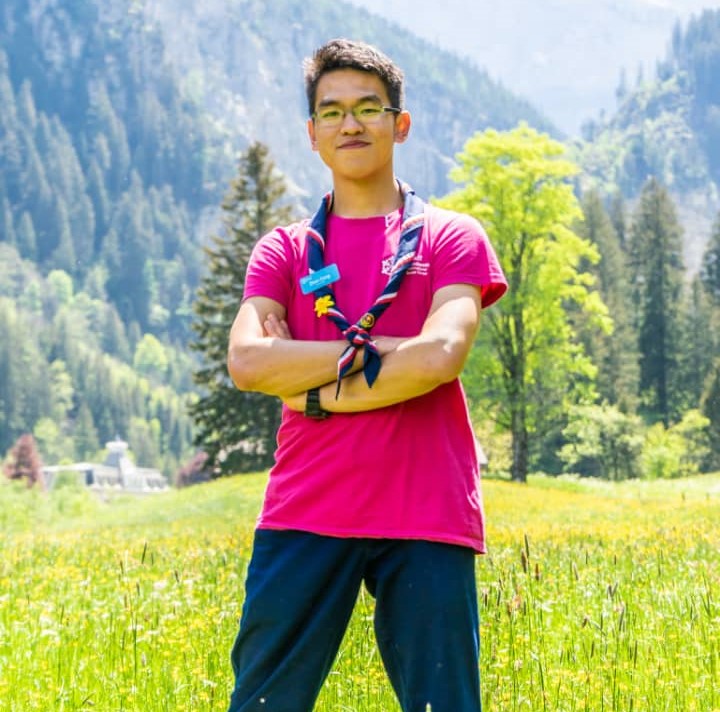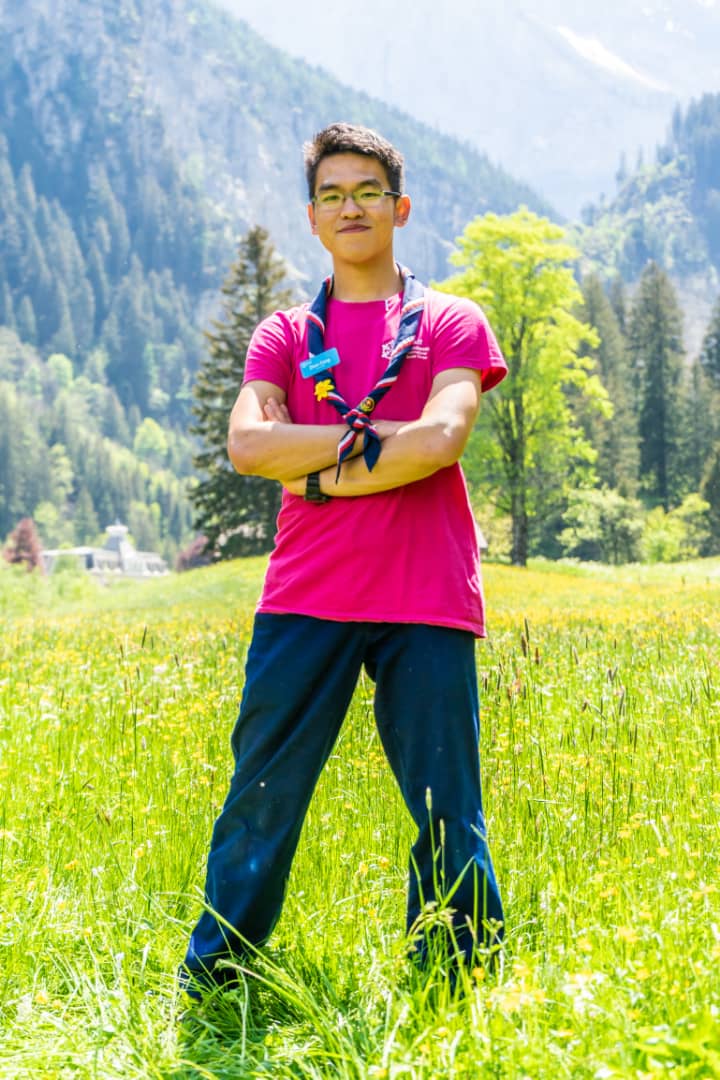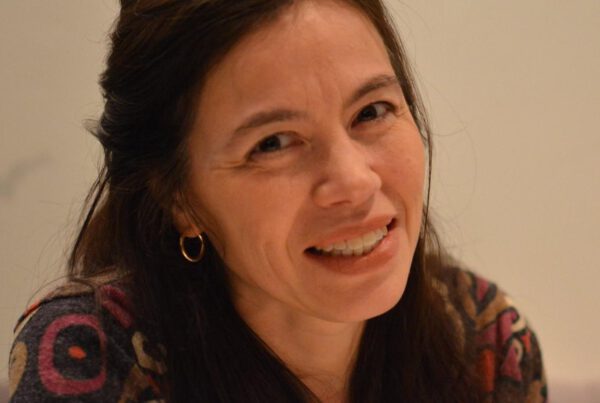

Ng Zhen Cong
What is it like to be a Psychology student? Three questions for Ng Zhen Cong (bachelor, first year).
What is the most useful thing that you’ve learned from Psychology?
‘It’s only been five months since I started studying psychology but I have learned a lot. I remember in the first few months I already started comparing and trying to match what I have learned to what I see in real life. One of the more useful things that the courses have helped me understand is the theory behind what I see during my internship at a youth clinic in Malaysia – in particular, to understand the mechanisms behind what the patients may be experiencing. It gave me a new perspective on mental health, which is especially significant in Malaysia, where mental illness is seen as a weakness that one should not succumb to. I have become more understanding and empathetic as I now know there is a scientific basis to what is happening and it’s not just ‘all in their head’. It also gave me a new perspective in my interactions with others. I’m taking time to put myself in other people’s shoes, especially in my everyday life when I work with my peers.’
What do you like and dislike about Psychology at UvA?
‘I like that the psychology department is really focused on providing a good foundation of psychological knowledge. In the first two to four months, I already knew enough to understand 50-60% of the psychological terms in my internship, and it does not take much explanation to understand the remaining terms and information. I also like the supportive atmosphere created by my fellow students and tutors. Within the first few days, people were sharing summaries and flashcards and arranging study groups and zoom calls. In the tutorial, everyone had their cameras on as compared to some horror stories I’ve heard (about other universities) where students sabotage each other, and tutors have their cameras off during the whole tutorial. One thing I dislike is that when the academic year started, we never had real-life interactions with our professors – I remember the first time we met Peter Starreveld was in a welcome video and everything else consisted of pre-recorded lectures from a previous year. The only time we interacted with Peter was when he sent out a strongly worded email regarding a copyright issue with students recording lectures. In general, the online education provided could be better – social psychology was the only course that made the effort to have the option of attending live lectures. Live lectures made it feel like I was finally attending a proper university course where I could see my peers and interact with the lecturers. Additionally, the hands-off, self-study approach – while it has its advantages – can be confusing and stressful, especially for the Reading and Writing of Scientific Texts (RWST) course. If you don’t have a good support structure like study friends who can help piece the information together with you (and it is difficult to find this support in this online studying situation), it can be quite tough and overwhelming. It may be that people assume everyone is doing better than they are so people are reluctant to ask questions, but in reality, everyone is probably struggling. Especially with studying online using pre-recorded lectures, it can be very isolating. It makes me feel like I’m the only one who feels lost and this can be quite tough, mentally. I question whether this programme is for me, whether this university is for me. This programme is very intense, especially online. Not to mention, there are time limits for everything – we have to watch our lectures within 24 hours and finish our weekly assignments by a certain day. Lastly, the segregation of Dutch and non-Dutch students is kind of weird, especially in online education. There has been a saying going around that it’s notoriously hard to make a Dutch friend. Personally, I have only met one or two Dutch students. It feels weird that I’m going to a Dutch university and I’m meeting very few Dutch people and not learning much about Dutch people or the culture.’
What is your view on the role of psychology in society?
‘If you play Hearthstone, one of the Hearthstone characters says something like ‘Knowledge is power and I know a lot!’. Knowledge is power. In Malaysia, psychoeducation is rather limited – psychology is a very new concept to us. We have an entire two generations who view psychology as something alien. Often, issues regarding mental health and psychology are referred to Shamans, Gurus, and Witch Doctors instead of actual doctors. Parents or relatives look at it as taboo – they refer to people who suffer from mental illness as weak and think facing a challenge in the mind is less of an issue than breaking an arm. When instead, psychological damage could be more debilitating than they give credit for. I think the more society understands psychology and mental health, and if provided with the support structure and policies that consider the psychological aspects of issues, it can empower society to a higher level. One of the more interesting concepts I’ve heard is the orchid and dandelion children. A common argument in Malaysia is that ‘person X can do it, why does person Y need extra help? Is he weak?’. Dismissing individual differences wastes a lot of potential and this may result from these unforgiving judgements. If we look at what was taught to us, given the right environment, those who struggle in a more adverse condition can thrive than those who are stable across situations, when provided the right environment.’

Ng Zhen Cong
What is it like to be a Psychology student? Three questions for Ng Zhen Cong (bachelor, first year).
What is the most useful thing that you’ve learned from Psychology?
‘It’s only been five months since I started studying psychology but I have learned a lot. I remember in the first few months I already started comparing and trying to match what I have learned to what I see in real life. One of the more useful things that the courses have helped me understand is the theory behind what I see during my internship at a youth clinic in Malaysia – in particular, to understand the mechanisms behind what the patients may be experiencing. It gave me a new perspective on mental health, which is especially significant in Malaysia, where mental illness is seen as a weakness that one should not succumb to. I have become more understanding and empathetic as I now know there is a scientific basis to what is happening and it’s not just ‘all in their head’. It also gave me a new perspective in my interactions with others. I’m taking time to put myself in other people’s shoes, especially in my everyday life when I work with my peers.’
What do you like and dislike about Psychology at UvA?
‘I like that the psychology department is really focused on providing a good foundation of psychological knowledge. In the first two to four months, I already knew enough to understand 50-60% of the psychological terms in my internship, and it does not take much explanation to understand the remaining terms and information. I also like the supportive atmosphere created by my fellow students and tutors. Within the first few days, people were sharing summaries and flashcards and arranging study groups and zoom calls. In the tutorial, everyone had their cameras on as compared to some horror stories I’ve heard (about other universities) where students sabotage each other, and tutors have their cameras off during the whole tutorial. One thing I dislike is that when the academic year started, we never had real-life interactions with our professors – I remember the first time we met Peter Starreveld was in a welcome video and everything else consisted of pre-recorded lectures from a previous year. The only time we interacted with Peter was when he sent out a strongly worded email regarding a copyright issue with students recording lectures. In general, the online education provided could be better – social psychology was the only course that made the effort to have the option of attending live lectures. Live lectures made it feel like I was finally attending a proper university course where I could see my peers and interact with the lecturers. Additionally, the hands-off, self-study approach – while it has its advantages – can be confusing and stressful, especially for the Reading and Writing of Scientific Texts (RWST) course. If you don’t have a good support structure like study friends who can help piece the information together with you (and it is difficult to find this support in this online studying situation), it can be quite tough and overwhelming. It may be that people assume everyone is doing better than they are so people are reluctant to ask questions, but in reality, everyone is probably struggling. Especially with studying online using pre-recorded lectures, it can be very isolating. It makes me feel like I’m the only one who feels lost and this can be quite tough, mentally. I question whether this programme is for me, whether this university is for me. This programme is very intense, especially online. Not to mention, there are time limits for everything – we have to watch our lectures within 24 hours and finish our weekly assignments by a certain day. Lastly, the segregation of Dutch and non-Dutch students is kind of weird, especially in online education. There has been a saying going around that it’s notoriously hard to make a Dutch friend. Personally, I have only met one or two Dutch students. It feels weird that I’m going to a Dutch university and I’m meeting very few Dutch people and not learning much about Dutch people or the culture.’
What is your view on the role of psychology in society?
‘If you play Hearthstone, one of the Hearthstone characters says something like ‘Knowledge is power and I know a lot!’. Knowledge is power. In Malaysia, psychoeducation is rather limited – psychology is a very new concept to us. We have an entire two generations who view psychology as something alien. Often, issues regarding mental health and psychology are referred to Shamans, Gurus, and Witch Doctors instead of actual doctors. Parents or relatives look at it as taboo – they refer to people who suffer from mental illness as weak and think facing a challenge in the mind is less of an issue than breaking an arm. When instead, psychological damage could be more debilitating than they give credit for. I think the more society understands psychology and mental health, and if provided with the support structure and policies that consider the psychological aspects of issues, it can empower society to a higher level. One of the more interesting concepts I’ve heard is the orchid and dandelion children. A common argument in Malaysia is that ‘person X can do it, why does person Y need extra help? Is he weak?’. Dismissing individual differences wastes a lot of potential and this may result from these unforgiving judgements. If we look at what was taught to us, given the right environment, those who struggle in a more adverse condition can thrive than those who are stable across situations, when provided the right environment.’



